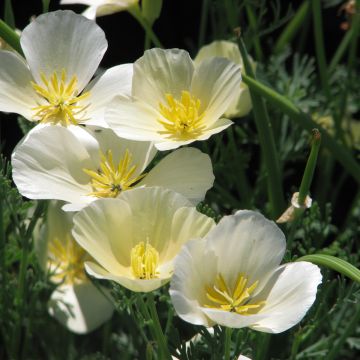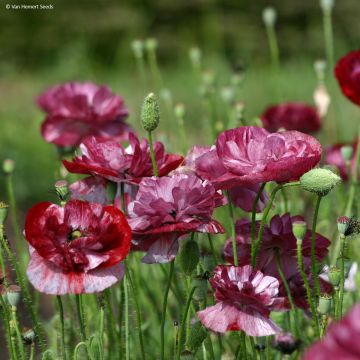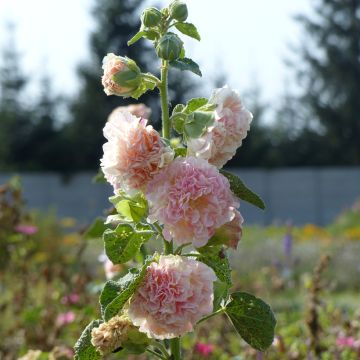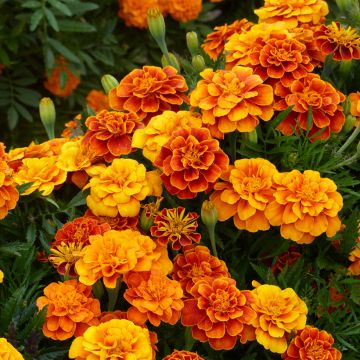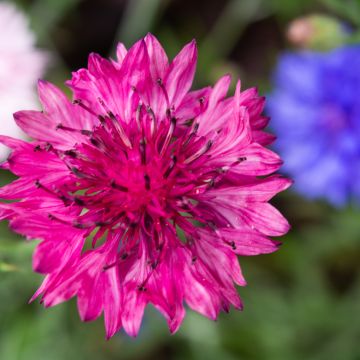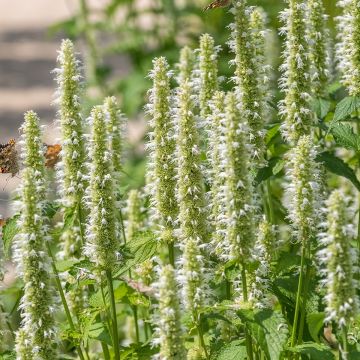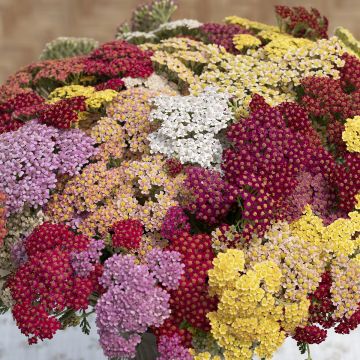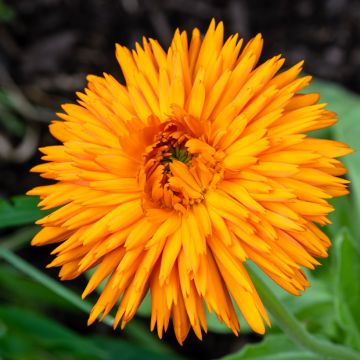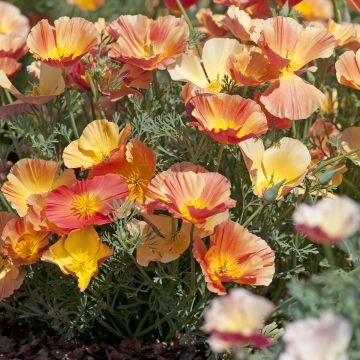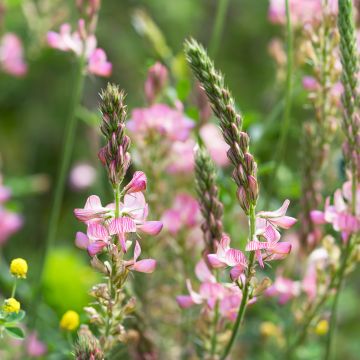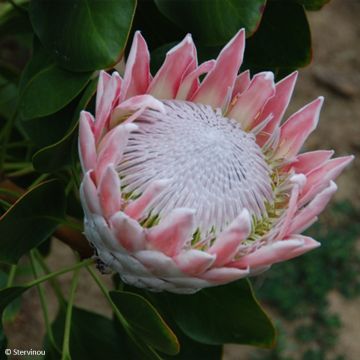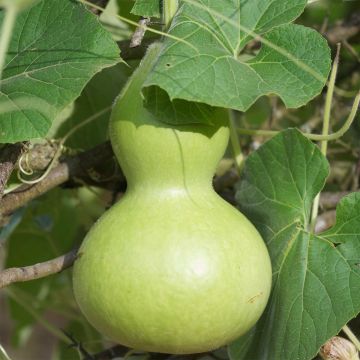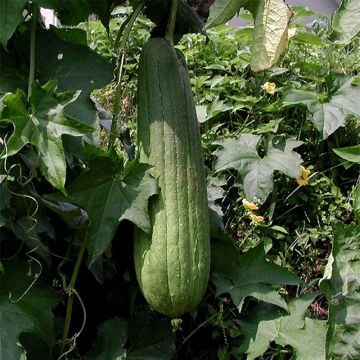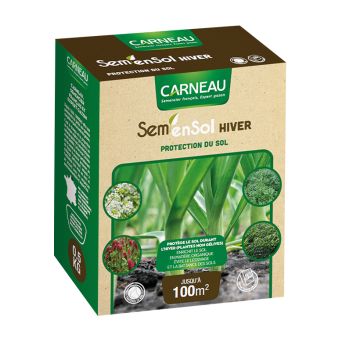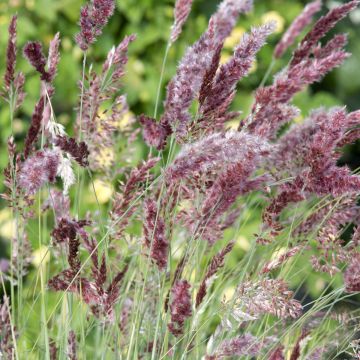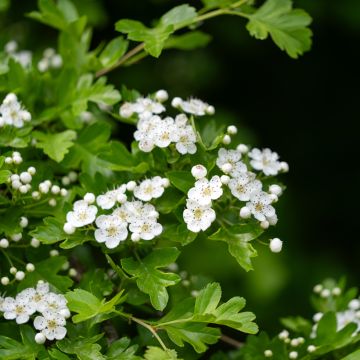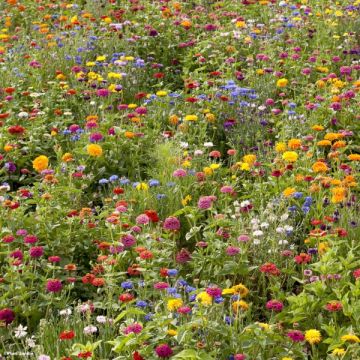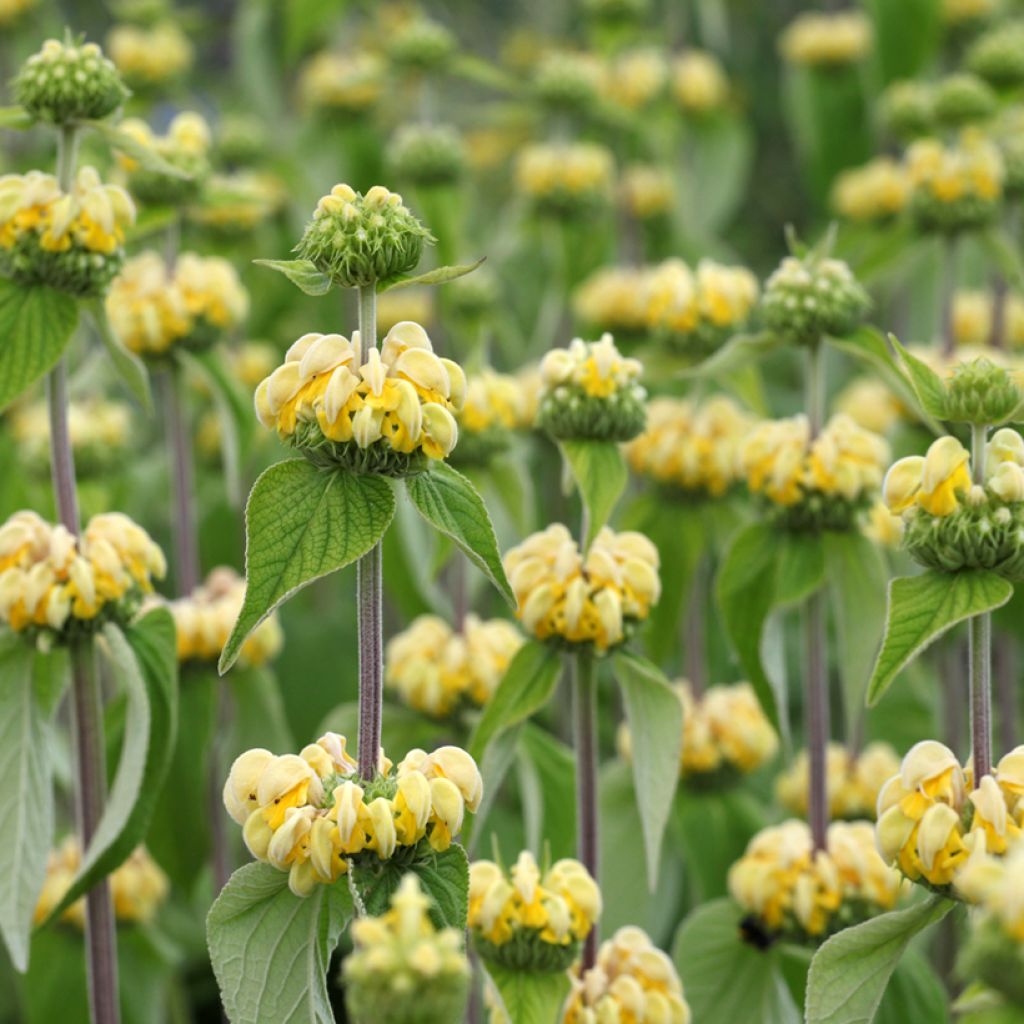

Phlomis russeliana - Jerusalem Sage seeds
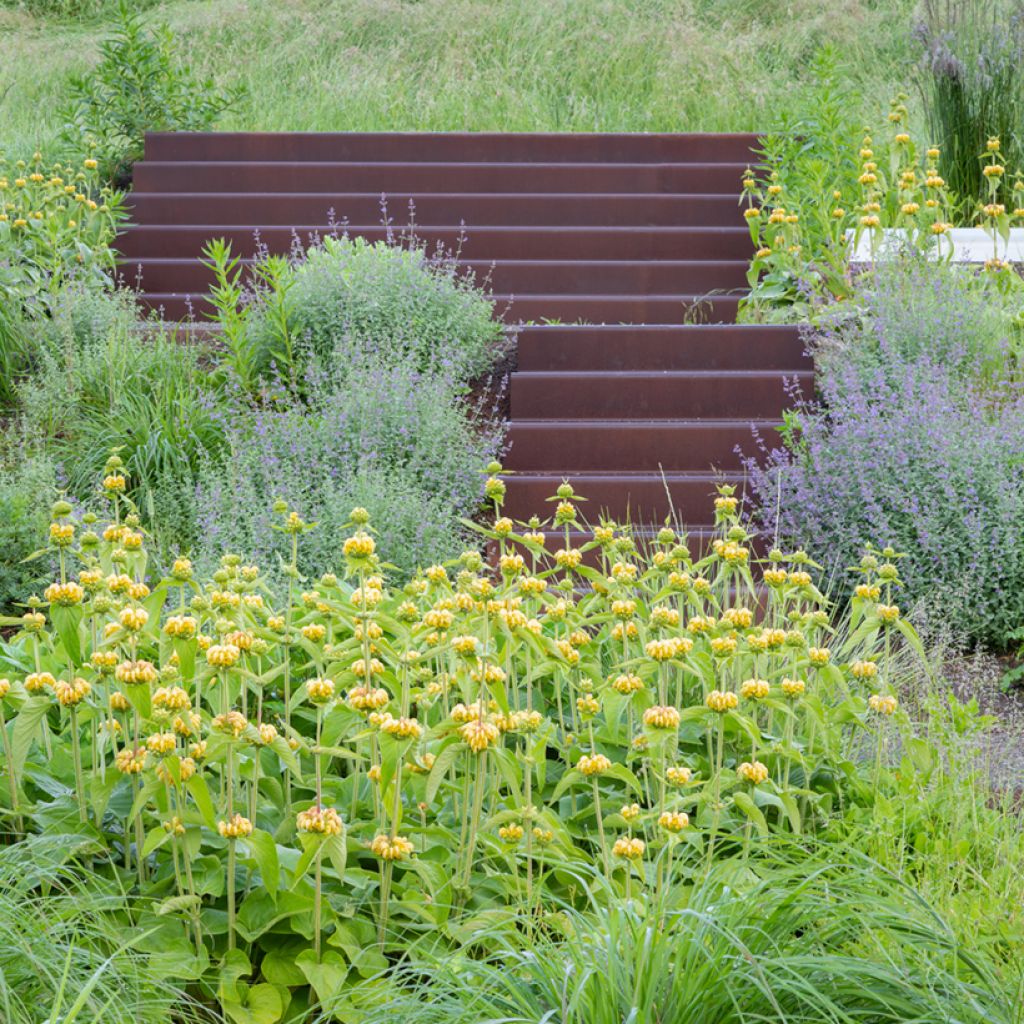

Phlomis russeliana - Jerusalem Sage seeds
Phlomis russeliana - Jerusalem Sage seeds
Phlomis russeliana
Turkish Sage, Jerusalem Sage
Special offer!
Receive a €20 voucher for any order over €90 (excluding delivery costs, credit notes, and plastic-free options)!
1- Add your favorite plants to your cart.
2- Once you have reached €90, confirm your order (you can even choose the delivery date!).
3- As soon as your order is shipped, you will receive an email containing your voucher code, valid for 3 months (90 days).
Your voucher is unique and can only be used once, for any order with a minimum value of €20, excluding delivery costs.
Can be combined with other current offers, non-divisible and non-refundable.
Home or relay delivery (depending on size and destination)
Schedule delivery date,
and select date in basket
This plant carries a 6 months recovery warranty
More information
We guarantee the quality of our plants for a full growing cycle, and will replace at our expense any plant that fails to recover under normal climatic and planting conditions.
Would this plant suit my garden?
Set up your Plantfit profile →
Description
Phlomis russeliana, commonly known as Jerusalem Sage or Russel's Phlomis, is a perennial ground cover plant of interest for its robustness and unusual appearance. This Mediterranean plant bears attractive green foliage and upright stems with whorls of pale yellow flowers. It adapts well in borders, rock gardens, or as a mass planting, where it is valued for its drought resistance and low maintenance requirements.
Belonging to the Lamiaceae family, Phlomis russeliana is native to Mediterranean regions, particularly Syria and Turkey. In its natural habitat, it is mainly found in dry and sunny areas, often on rocky or poor soils. This bushy, perennial plant can reach up to 1 metre in height and spread about 60 to 80 cm wide. Its growth is moderate but regular, allowing it to gradually form large structured masses. The greyish-green, woolly foliage persists in winter in mild regions. It remains attractive even outside the flowering period. The stiff, erect floral stems bear whorls of light yellow helmet-shaped flowers, appearing from June to August. These flowers, arranged in tiers along the stems, contrast pleasantly with the foliage. They attract numerous pollinators. The fruits of Phlomis russeliana are dry capsules, called achenes, which develop at the base of faded flowers. Ovoid and small (3 to 4 mm), these brown achenes contain a single seed. They often persist on the plant in autumn. The plant may sometimes self-seed in the garden without becoming invasive.
Phlomis russeliana is also notable for its cold resistance (down to -15°C) and its drought tolerance once well-established. It is an ideal plant for dry climates or gardens. This Jerusalem Sage fits well in perennial borders, dry or Mediterranean gardens, and even as an edging plant along pathways. Its vertical structure and spike-like yellow flowers create dynamic scenes. It pairs particularly well with other sun-loving, drought-tolerant perennials such as Lavenders, Catmints, Euphorbia characias ssp. wulfenii (Spurge), and Achillea millefolium 'Terracotta' (Terracotta Yarrow). Phlomis russeliana is also highly effective for stabilising slopes or embankments. It can be used en masse to create a meadow effect or in combination with dry soil grasses for a natural, flowing effect.
Report an error about the product description
Phlomis russeliana - Jerusalem Sage seeds in pictures


Flowering
Foliage
Plant habit
Botanical data
Phlomis
russeliana
Lamiaceae
Turkish Sage, Jerusalem Sage
Phlomis samia HORT., Phlomis viscosa HORT.
Mediterranean
Other Flower seeds A to Z
View all →Planting and care
To successfully sow Phlomis russeliana, prepare your seeds by cold stratifying them for about 4 to 6 weeks. This step mimics the necessary winter conditions to break seed dormancy. Here's how:
-
Combine the seeds with a moist substrate, such as sand or vermiculite, in a plastic bag or a small container. The substrate should be just moist enough for you to feel it but not waterlogged.
-
Refrigeration: Place the closed bag or container in the refrigerator at a temperature of around 4°C (about 39°F). Leave the seeds in these conditions for a period of 4 to 6 weeks, depending on the plant's specific requirements.
-
Check regularly: Monitor the substrate's moisture to ensure it doesn't dry out. After the stratification period, remove the seeds from the refrigerator and sow them immediately in a suitable substrate at a warmer temperature.
Sow the seeds in spring, preferably under cover, in a light and well-drained substrate consisting of a mix of compost and sand. Sow them on the surface or at a shallow depth (about 0.5 cm), then lightly firm the soil and water without excess. Maintain a constant temperature of around 18-20°C to promote germination, which can take 2 to 6 weeks. Once the young plants have developed several true leaves, transplant them into individual pots before planting them outdoors after the last frost.
Cultivation:
Phlomis russeliana prefers a sunny location but can tolerate light shade in very hot climates. Plant it in well-drained soil, even poor or rocky, as this plant dislikes stagnant moisture that could lead to root rot. Once established, it is very drought-resistant. Water moderately in the first year to aid in rooting, then space out watering. In late winter, you can prune faded flower stems to encourage new growth. Feeeding is not necessary.
Sowing period
Intended location
This item has not been reviewed yet - be the first to leave a review about it.
Similar products
Haven't found what you were looking for?
Hardiness is the lowest winter temperature a plant can endure without suffering serious damage or even dying. However, hardiness is affected by location (a sheltered area, such as a patio), protection (winter cover) and soil type (hardiness is improved by well-drained soil).

Photo Sharing Terms & Conditions
In order to encourage gardeners to interact and share their experiences, Promesse de fleurs offers various media enabling content to be uploaded onto its Site - in particular via the ‘Photo sharing’ module.
The User agrees to refrain from:
- Posting any content that is illegal, prejudicial, insulting, racist, inciteful to hatred, revisionist, contrary to public decency, that infringes on privacy or on the privacy rights of third parties, in particular the publicity rights of persons and goods, intellectual property rights, or the right to privacy.
- Submitting content on behalf of a third party;
- Impersonate the identity of a third party and/or publish any personal information about a third party;
In general, the User undertakes to refrain from any unethical behaviour.
All Content (in particular text, comments, files, images, photos, videos, creative works, etc.), which may be subject to property or intellectual property rights, image or other private rights, shall remain the property of the User, subject to the limited rights granted by the terms of the licence granted by Promesse de fleurs as stated below. Users are at liberty to publish or not to publish such Content on the Site, notably via the ‘Photo Sharing’ facility, and accept that this Content shall be made public and freely accessible, notably on the Internet.
Users further acknowledge, undertake to have ,and guarantee that they hold all necessary rights and permissions to publish such material on the Site, in particular with regard to the legislation in force pertaining to any privacy, property, intellectual property, image, or contractual rights, or rights of any other nature. By publishing such Content on the Site, Users acknowledge accepting full liability as publishers of the Content within the meaning of the law, and grant Promesse de fleurs, free of charge, an inclusive, worldwide licence for the said Content for the entire duration of its publication, including all reproduction, representation, up/downloading, displaying, performing, transmission, and storage rights.
Users also grant permission for their name to be linked to the Content and accept that this link may not always be made available.
By engaging in posting material, Users consent to their Content becoming automatically accessible on the Internet, in particular on other sites and/or blogs and/or web pages of the Promesse de fleurs site, including in particular social pages and the Promesse de fleurs catalogue.
Users may secure the removal of entrusted content free of charge by issuing a simple request via our contact form.
The flowering period indicated on our website applies to countries and regions located in USDA zone 8 (France, the United Kingdom, Ireland, the Netherlands, etc.)
It will vary according to where you live:
- In zones 9 to 10 (Italy, Spain, Greece, etc.), flowering will occur about 2 to 4 weeks earlier.
- In zones 6 to 7 (Germany, Poland, Slovenia, and lower mountainous regions), flowering will be delayed by 2 to 3 weeks.
- In zone 5 (Central Europe, Scandinavia), blooming will be delayed by 3 to 5 weeks.
In temperate climates, pruning of spring-flowering shrubs (forsythia, spireas, etc.) should be done just after flowering.
Pruning of summer-flowering shrubs (Indian Lilac, Perovskia, etc.) can be done in winter or spring.
In cold regions as well as with frost-sensitive plants, avoid pruning too early when severe frosts may still occur.
The planting period indicated on our website applies to countries and regions located in USDA zone 8 (France, United Kingdom, Ireland, Netherlands).
It will vary according to where you live:
- In Mediterranean zones (Marseille, Madrid, Milan, etc.), autumn and winter are the best planting periods.
- In continental zones (Strasbourg, Munich, Vienna, etc.), delay planting by 2 to 3 weeks in spring and bring it forward by 2 to 4 weeks in autumn.
- In mountainous regions (the Alps, Pyrenees, Carpathians, etc.), it is best to plant in late spring (May-June) or late summer (August-September).
The harvesting period indicated on our website applies to countries and regions in USDA zone 8 (France, England, Ireland, the Netherlands).
In colder areas (Scandinavia, Poland, Austria...) fruit and vegetable harvests are likely to be delayed by 3-4 weeks.
In warmer areas (Italy, Spain, Greece, etc.), harvesting will probably take place earlier, depending on weather conditions.
The sowing periods indicated on our website apply to countries and regions within USDA Zone 8 (France, UK, Ireland, Netherlands).
In colder areas (Scandinavia, Poland, Austria...), delay any outdoor sowing by 3-4 weeks, or sow under glass.
In warmer climes (Italy, Spain, Greece, etc.), bring outdoor sowing forward by a few weeks.






























